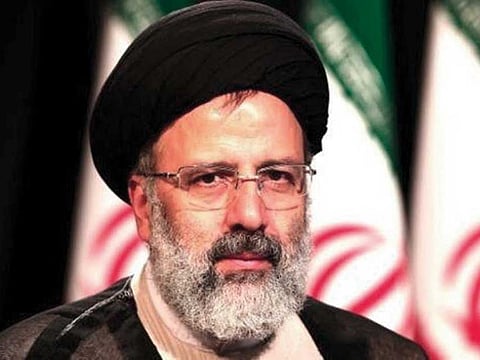Iran polls expected to boost power of hardliners
Moderates’ chances extremely slim because of projected low turnout

Iran is widely expected to move further to the right today as Iranians go the polls to elect a new president. The hardline chief justice, Ebrahim Raisi, a close ally of the Supreme Leader Ali Khamenei, is projected to win.
Most Iran experts expect an easy win for Raisi, the 60-year-old protege of the Supreme Leader, as most moderate candidates have been barred from running by the powerful Guardian Council. The only candidate from the moderate camp who has a chance to stage some sort of a challenge, albeit very meagre, is the former central bank governor Abdolnaser Hemmati. However, his chances seem extremely slim because of the expected low turnout.
Large turnout usually benefits the moderates while this time only a minority of Iranians, the hardcore regime loyalists, are expected to vote. The majority of Iranians has been put off by the decision of the Guardian Council, a panel of 12 unelected jurists and scholars who are mostly close to Khamenei, to allow only seven out of nearly 600 applicants to run in the polls. It has rejected all prominent politicians, including former parliament speaker Ali Larijani and former president Mahmoud Ahmadinejad, who has recently become a vocal critic of the regime. A recent poll by the Iranian Students Polling Agency (Ispa), which is close to the government, showed an expected turnout of just 36 per cent.
Iranians have been disenchanted by the government’s failure to fix the economic crisis, the worst since the revolution. The economy has shrunk by 5 per cent last year as the US reimposed sanctions following former president Donald Trump’s decision in 2017 to exit the nuclear deal and the economic impact of the pandemic. Inflation has soared to a record 50 per cent.
The government has also failed to deal with the pandemic itself. Iran has the highest death toll in the Middle East. Meanwhile, as a result of Tehran’s hostile foreign policy and interference in Arab countries such as Yemen, Iraq, Lebanon and Syria, Tehran’s relations with neighbouring Arab countries are at their lowest point.
Another reason for the expected low turnout is the common belief among Iranians that any president will not be able to introduce real change because the real centre of power is the Supreme Leader. Even the limited powers of the president, such as nominating cabinet members and proposing the budget, are greatly influenced by the Supreme Leader.
In a recent leaked conversation with an Iranian think-tank, Foreign Minister Mohammad Javad Zarif stressed that point by affirming that Iran’s foreign policy is set by the Revolutionary Guards, the hardline force controlled by Khamenei.
The decision of the Guardian Council to reject moderate candidates has effectively clinched the polls in favour of Khamenie’s man Raisi and paved the way for a sharp move to the right. The 2021 elections will likely solidify the power of the hardliners, but more importantly will obliterate the residues of whatever is left of the so-called reformists.



